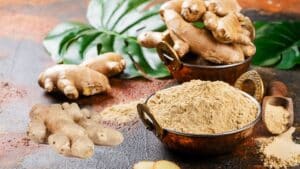
For many, the post-brush ritual involves a thorough rinse with water to clear away any remaining toothpaste. However, recent insights from dental professionals suggest that this practice might not be as beneficial as once thought. Leaving a trace of toothpaste on the teeth could actually enhance dental health.
Traditionally, individuals often rinse their mouths after brushing to remove any lingering toothpaste residue. But according to dental experts like Dr. Edmond Hewlett, a consumer advisor for the American Dental Association and a professor at UCLA School of Dentistry, this might diminish the efficacy of fluoride, a key component in most toothpaste formulations.
Fluoride is renowned for its role in fortifying enamel and safeguarding teeth against decay. When toothpaste is left on the teeth after brushing, the fluoride continues to interact with the enamel, providing prolonged protection against acid erosion from food and beverages.
Dr. Hewlett advises against immediate rinsing post-brushing, suggesting a waiting period of at least 15 minutes before drinking water. This delay allows saliva to naturally clear the residual toothpaste taste while ensuring that the fluoride remains on the teeth for an extended duration.
Individuals concerned that years of rinsing may have compromised their dental health need not fret. Dr. Hewlett reassures that consistent brushing with fluoride toothpaste twice a day for the recommended duration still confers significant benefits. Not rinsing simply amplifies fluoride’s protective effects, particularly for those prone to dental decay.
While the impact of rinsing habits may vary depending on individual dental profiles, individuals at higher risk of cavities may find avoiding rinsing particularly advantageous. Dr. Hewlett advises consulting with a dentist for personalized guidance tailored to individual dental health needs and risk factors.
Regarding mouthwash use, timing is key. Since most mouthwashes contain less fluoride than toothpaste, using them immediately after brushing can dilute the residual fluoride on the teeth. Dr. Hewlett recommends using mouthwash at separate times, such as midday or after meals, to maximize its efficacy.
In addition to these recommendations, Dr. Hewlett emphasizes the importance of using a soft-bristled toothbrush to prevent gum recession, gentle brushing techniques to protect gums and enamel, and seeking professional dental advice for personalized care strategies. By adhering to these practices, individuals can optimize their dental care routines for improved oral health outcomes.

